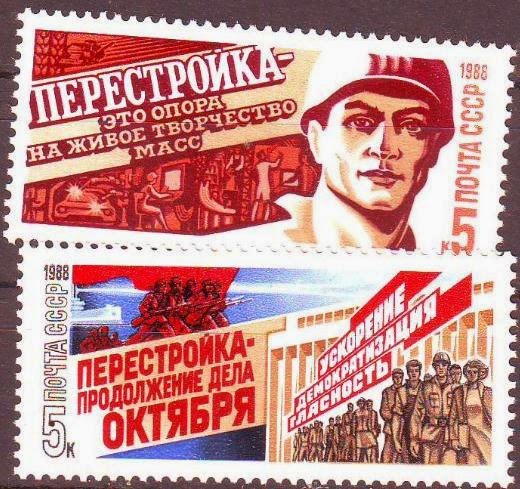Much like President Reagan, Mikhail Gorbachev played an important role in the Washington Summit, and an even more important role in the fall of communism in the Soviet Union. In 1952, Gorbachev entered law school at Moscow State University, and formally became a member of the Communist party. When the previous general secretary of the Soviet Union, Konstantin Chernenko died in 1985, Gorbachev took his place.
Mikhail Gorvachev

Gorbachev giving a speech before his departure on the last day of the Washington Summit.
"It's better to discuss things, to argue and engage in polemics than make perfidious plans of mutual destruction" - Mikhail Gorbachev
A Russian stamp depicting Perestroika

When Gorbachev took power, he initiated Perestroika and Glasnost. Perestroika is reconstruction in the Soviet Union, lessening the control that the government had over decision-making of companies and giving workers better working conditions in hope to increase production. Glasnost was the effort to give people free speech and the opportunity to share opinions with each other. Gorbachev hoped that these two policies would restore the Soviet Union, but instead they helped contribute to the downfall of the Soviet Union. People began to question communism's effectiveness in government, and one figurative domino toppled the next, eventually destroying the Soviet Union from the inside out.
Over the course of Gorbachev's time as General Secretary, Gorbachev and Reagan met many times discussing concerning topics. After the Washington Summit, Gorbachev's favorable rating rose from a mere 40% to 77%, partially because of his popular reforms. In 1989, he was elected President of the Soviet Union. In 1990, Gorbachev won the Nobel Peace Prize for his achievements in international relations.
Mikhail Gorbachev